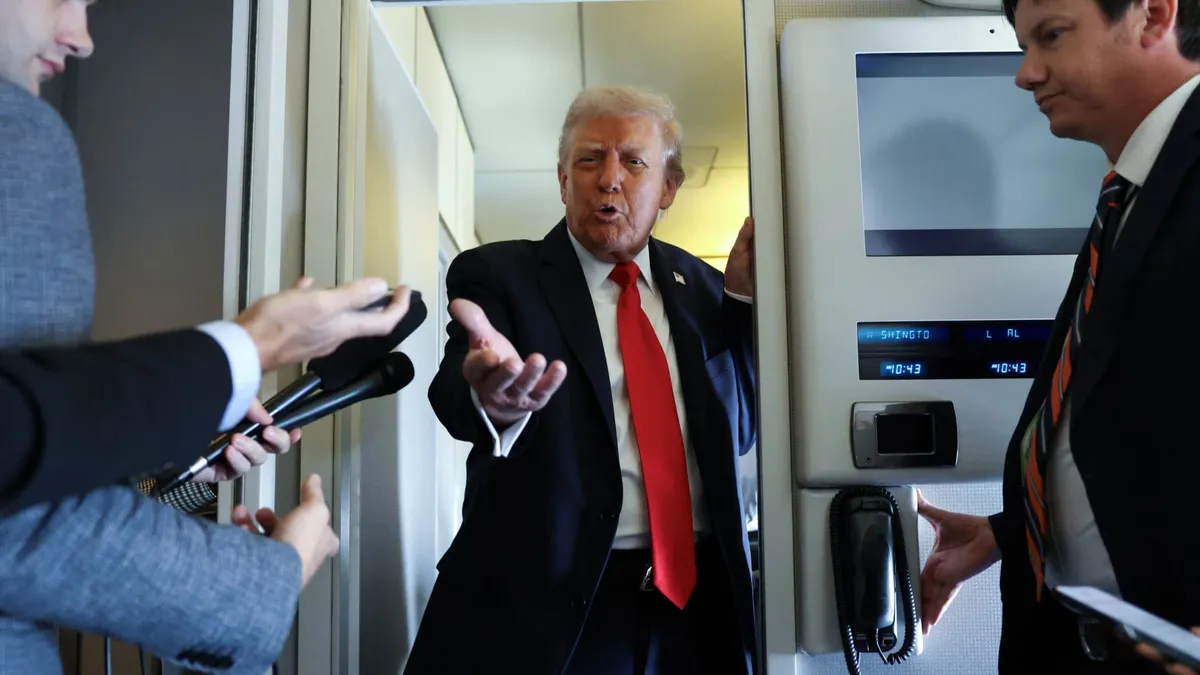
On Thursday, President Donald Trump made headlines with a bold statement, suggesting that the federal government could potentially revoke the licenses of broadcast television networks that he perceives as biased against him. This comment came shortly after ABC suspended the airing of the Jimmy Kimmel Live! show, following remarks made by host Jimmy Kimmel that linked the alleged assailant of conservative activist Charlie Kirk to Trump’s MAGA movement.
During a press briefing on Air Force One, Trump expressed his frustration with what he described as overwhelmingly negative media coverage, stating, "I have read someplace that the networks were 97% against me," referring to the media's portrayal of his campaign. He emphasized that despite this negative press, he managed to secure victories in all seven swing states during the 2024 election. "They give me only bad publicity," he asserted, highlighting his belief that such treatment warrants a reconsideration of broadcasting licenses.
The day before Trump's remarks, FCC Chairman Brendan Carr hinted at possible repercussions for ABC, a subsidiary of Disney, if it did not take action regarding Kimmel's comments. Speaking on CNBC's Squawk on the Street, Carr noted that changes in the media landscape are ongoing as a direct consequence of Trump's election. Trump praised Carr, whom he appointed, calling him "outstanding" and a "patriot" who is committed to the country.
Broadcast television networks, including ABC, CBS, NBC, and Fox, are required to obtain licenses from the Federal Communications Commission (FCC) to operate. This licensing is critical as their content is transmitted over the airwaves, allowing viewers to access programming for free with just an antenna. In contrast, cable TV networks rely on subscription fees from viewers, creating a different operational dynamic.
Trump's comments suggested that if networks consistently deliver negative coverage, particularly through late-night shows, there should be a discussion about their licensing. "If you go back, I guess they haven't had a conservative on in years," he claimed, arguing that networks should not be allowed to operate in a manner that he perceives as biased against any political figure. He stated, "They're an arm of the Democrat party," further solidifying his stance against what he views as partisan media practices.
As the media landscape continues to evolve, the implications of Trump's statements on broadcast regulations will likely be a topic of ongoing discussion among industry experts and lawmakers alike. This situation not only highlights the tension between the Trump administration and the media but also raises questions about the future of broadcast journalism and its role in American democracy.
— This report includes contributions from CNBC's Lillian Rizzo. Disclosure: Comcast is the parent company of NBCUniversal, which owns CNBC. Versant is set to become the new parent company of CNBC following Comcast's planned spinoff of Versant.